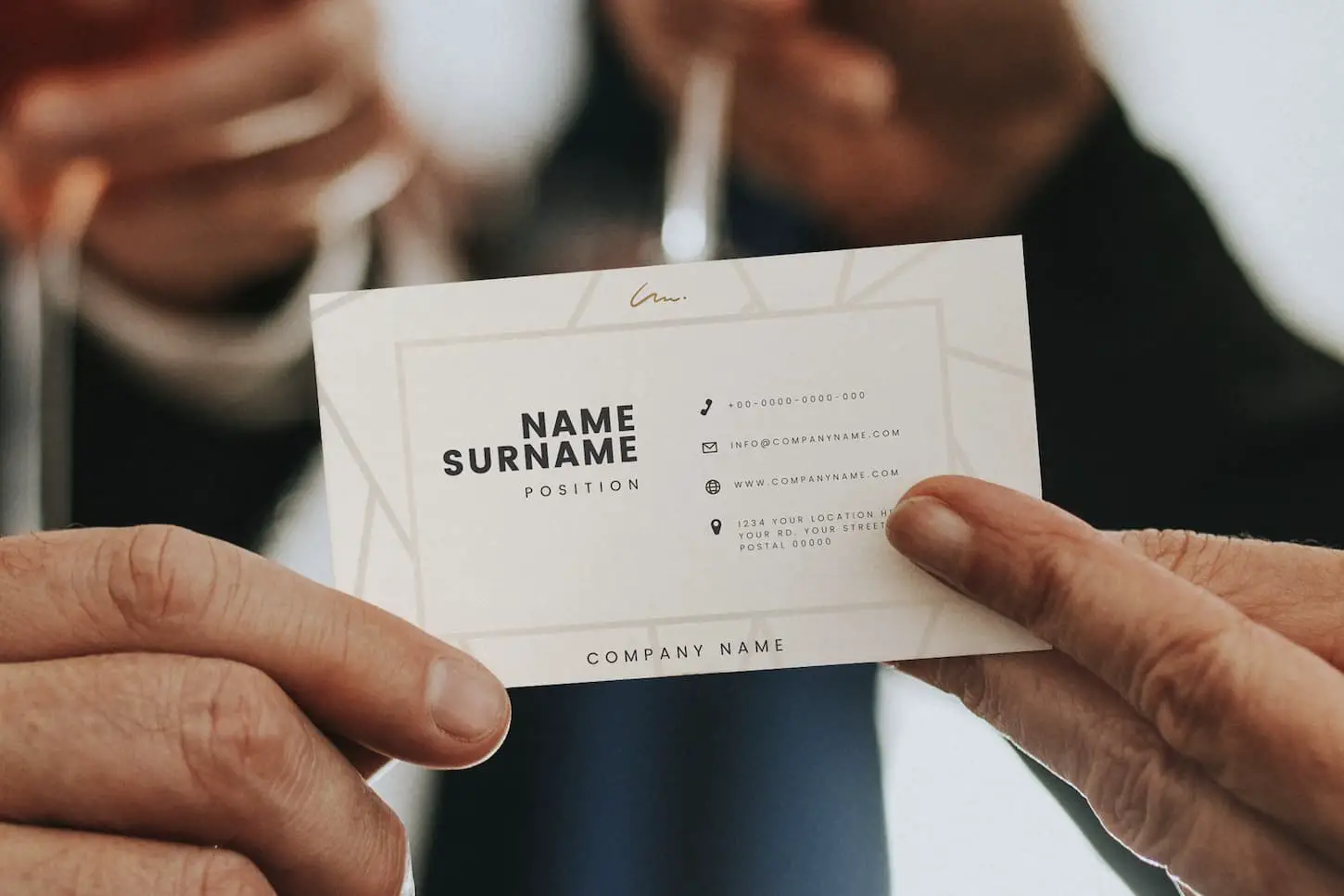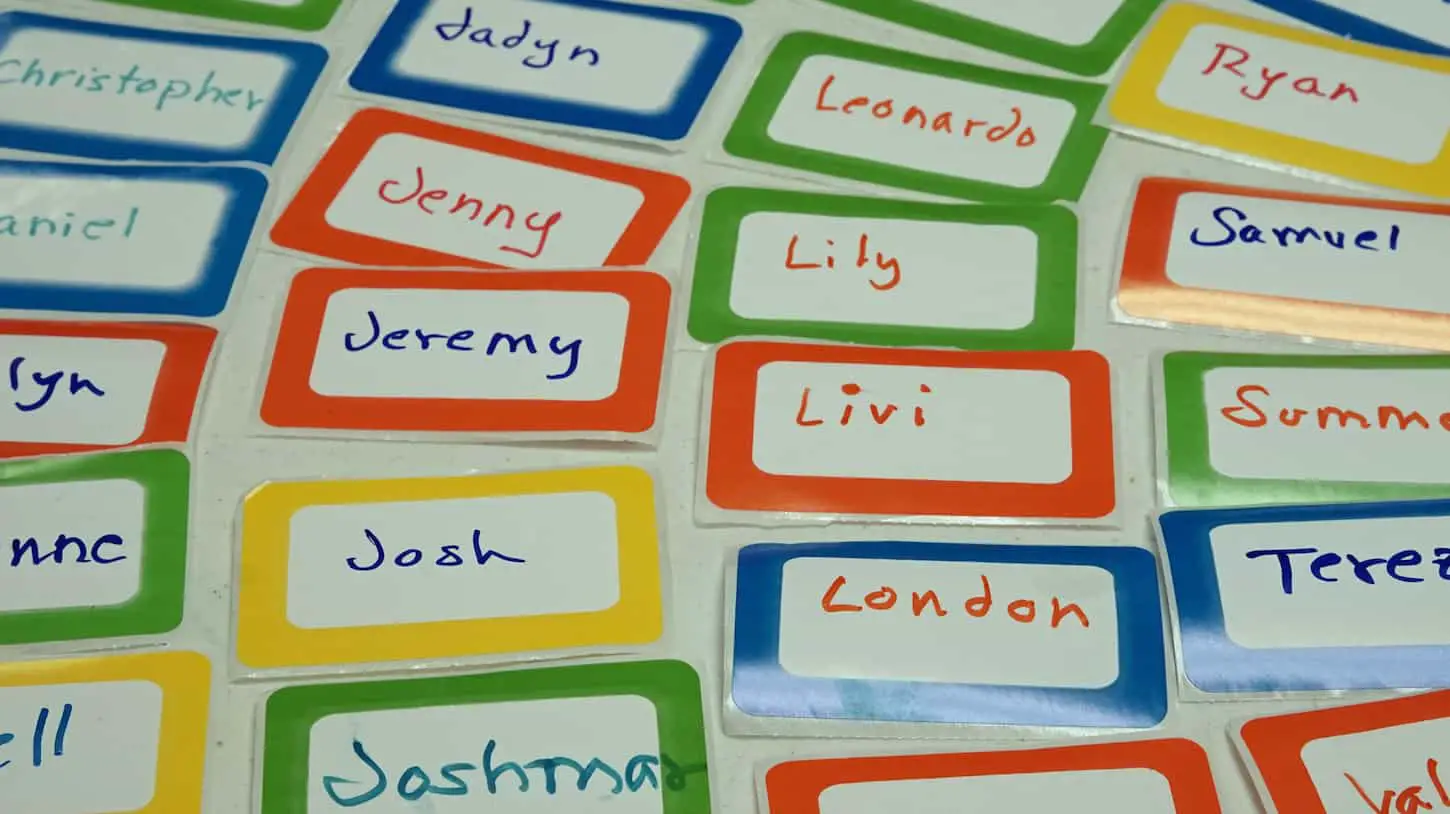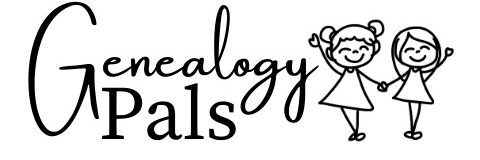Last names are so much fun to look at – especially looking into their history. And one common source of surnames is from the distant past when people adopted their job description as their family name.
Many family names or surnames were adopted based on jobs or occupations. These names come from across history, cultures, and more. These names account for a good-sized percentage of the world population.
All that being said, let’s take a look at 50 of the most common job-based surnames. When we get to the actual list, we’ll present it in two forms: a list and a table. That way, no matter what device you’re on or how you prefer to look at your data, we’ve got you covered.
Although if you’re on a mobile device, the list might be easier on your eyes. It’s a long list – and not super easy to keep track of on anything smaller than a tablet. After we go through the names, we’ll go into a few frequently asked questions about jobs, surnames, and everything in between them.

Did Last Names Come From Jobs or Occupations?
Many surnames and family names were job descriptions or occupations that a family either adopted or had assigned to them.
Last names (or surnames, if you want to say it the fancy way) have not been around forever. If you want to learn all about the history of last names you can check out this article we wrote on how far back surnames actually go.
Basically, unless your family is royalty, common people did not start using hereditary surnames until about 1267 in Europe (surnames usually go farther back in China).
This happened because, as people settled and communities grew, it was more common to share a first name with multiple people. So it became more and more necessary to be more specific about which “John” or “Mary” you were talking about.
In my fourth grade class, for example, there were four of us named Kim. It got confusing enough, and we all used our last names to differentiate ourselves!
The last names that people chose to adopt for their families can be categorized in one of 4 ways.
- By a person’s occupation (which is what we will be talking more about in this post)
- A patronymic family name. This means that the last names tell the relationship between people. For example, Johnson would indicate the person is John’s son.
- A location-inspired last name. These have to do with a place or nearby natural feature.
- A family name is based on a prominent physical or familial characteristic.
If you want more information on those other kinds of surnames, make sure you check out these articles.
- Are All People with the Same Last Name Related?
- Why Are Some Last Names So Common?
- Last Names that Come from Nature: 15 Origin Stories
In any case, let’s get an in-depth look at the first of these four types of surnames: those that come from occupations.
How Common Are Surnames from Jobs?
Of the top 100 most common surnames in America, only 16 of them originate as job-based surnames.
Considering Smith is the most common last name in most English-speaking countries, last names that are inspired by occupations are common.
Based on our analysis of this list of the top 100 most common U.S. surnames, only about 16 of the top 100 most common U.S. last names come from occupations.
So while job-based surnames are common (hello, all of you Smiths!), it’s not the only type of surname out there. And it may not seem as common as other types of surnames.

50 Last Names from Jobs (with brief descriptions) List
Abbot
- Origin: Anglo-Saxon
- A minister, priest, or father.
Archer
- Origin: English, French
- An archer or bowman.
Bailey
- Origin: Norman
- An officer of the court, civil official, or bailiff.
Baker
- Origin: Anglo-Saxon
- A person who made baked goods.
Barker
- Origin: Anglo-Saxon
- A person who stripped trees of bark for tanning herded sheep or yelled loudly to advertise a show.
Barber
- Origin: Scottish
- Someone who cut hair, gave shaves, did the surgery, or pulled teeth.
Bishop
- Origin: Anglo-Saxon
- Ecclesiastical leader or a person who portrayed one in a play.
Brewer
- Origin: Norman
- Someone who brewed beer or ale.
Butler
- Origin: Anglo-Norman
- Wine steward or highest-ranking servant in a household.
Carpenter
- Origin: Anglo-Saxon
- A person who made or repaired items made of wood.
Carter
- Origin: Anglo-Saxon
- Cart maker.
Chamberlain
- Origin: Norman
- The person is responsible for the care of a noble’s private chambers.
Clark
- Origin: Norman
- Secretary, scholarly, or of a religious order.
Coleman
- Origin: Gaelic
- A burner or gatherer of coal.
Cook
- Origin: Anglo-Saxon
- A person who cooked food or owned a restaurant.
Cooper
- Origin: Anglo-Saxon
- A maker or repairer of barrels, buckets, and other water-tight items.
Draper
- Origin: Anglo-Saxon
- Someone who made or sold woolen items.
Fisher
- Origin: Norman
- A fisherman.
Fletcher
- Origin: Norman
- Someone who made arrows
Fuller
- Origin: Anglo-Saxon
- A person who prepares the fabric for use.
Gardiner
- Origin: Anglo-Saxon
- Someone who tended or worked in a garden.
Goldsmith
- Origin: Anglo-Saxon
- A jewelry maker or a banker.
Hooper
- Origin: Anglo-Saxon
- Another name for a cooper.
Hunter
- Origin: Scottish
- Someone who hunts or poaches animals.
Luther
- Origin: German
- A person who served in the army.
Marshall
- Origin: Norman
- A blacksmith who had duties taking care of horses.
Mason
- Origin: Norman
- Someone who worked with stone, like a stonemason.
McGowan
- Origin: Gaelic
- Son of a blacksmith.
McIntyre
- Origin: Gaelic
- Son of a craftsman.
Merchant
- Origin: French
- A person who sold goods.
Messenger
- Origin: Scottish
- A person who delivered messages for royalty.
Miller
- Origin: Scottish/English
- A person who worked at or owned a mill, such as water, wind, grain, etc.
Parker
- Origin: English
- Someone who maintained parks or estates.
Reeve
- Origin: Anglo-Saxon
- A person who represents a lord or other noble person.
Roper
- Origin: Norman
- A person who made rope.
Sadler
- Origin: Anglo-Saxon
- Craftsmen who made saddles for horses.
Sawyer
- Origin: Anglo-Saxon
- A person who sawed wood for building and other town needs.
Sexton
- Origin: Anglo-Saxon
- Someone who maintained a churchyard, sometimes including grave digging.
Shoemaker (Schumaker)
- Origin: German
- A person who makes shoes.
Slater
- Origin: Anglo-Saxon
- A roofer.
Smith
- Origin: Anglo-Saxon
- Originally associated with an iron-working blacksmith, then extended to other crafts.
Tanner
- Origin: Anglo-Saxon
- A person who works with leather.
Tapper
- Origin: German
- Wine merchant or tavernkeeper.
Taylor
- Origin: Scottish/English
- A person who cut, sewed, and altered clothing.
Turner
- Origin: Norman
- Someone who crafts round items using a lathe.
Ward
- Origin: Norman
- A person who guards or watches.
Weaver
- Origin: Norman
- A person who weaves threads into cloth.
Webster
- Origin: Flemish/English
- A variation on the weaver.
Woodward
- Origin: Norman
- A person who looked after or guarded a wood.
Wright
- Origin: Anglo-Saxon
- A craftsman of any type. Often used as a suffix to specify the type of craftsman.

Table of Occupational Surnames (with brief descriptions)
| Family Name | Origin | Example or Meaning |
|---|---|---|
| Abbott | Anglo-Saxon | A minister, priest, or father. |
| Archer | English, French | An archer or bowman. |
| Bailey | Norman | An officer of the court, civil official, or bailiff. |
| Baker | Anglo-Saxon | A person who made baked goods. |
| Barker | Anglo-Saxon | A person who stripped trees of bark for tanning, herded sheep, or yelled loudly to advertise a show. |
| Barber | Scottish | Someone who cut hair, gave shaves, did the surgery, or pulled teeth. |
| Bishop | Anglo-Saxon | Ecclesiastical leader or a person who portrayed one in a play. |
| Brewer | Norman | Someone who brewed beer or ale. |
| Butler | Anglo-Norman | Wine steward or highest-ranking servant in a household. |
| Carpenter | Anglo-Saxon | A person who made or repaired items made of wood. |
| Carter | Anglo-Saxon | Cart maker. |
| Chamberlain | Norman | The person is responsible for the care of a noble’s private chambers. |
| Clark | Norman | Secretary, scholarly, or of a religious order. |
| Coleman | Gaelic | A burner or gatherer of coal. |
| Cook | Anglo-Saxon | A person who cooked food or owned a restaurant. |
| Cooper | Anglo-Saxon | A maker or repairer of barrels, buckets, and other water-tight items. |
| Draper | Anglo-Saxon | Someone who made or sold woolen items. |
| Fisher | Norman | A fisherman. |
| Fletcher | Norman | Someone who made arrows. |
| Fuller | Anglo-Saxon | A person who prepares the fabric for use. |
| Gardiner | Anglo-Saxon | Someone who tended or worked in a garden. |
| Goldsmith | Anglo-Saxon | A jewelry maker or a banker. |
| Hooper | Anglo-Saxon | Another name for a cooper. |
| Hunter | Scottish | Someone who hunts animals or poaches. |
| Luther | German | A person who served in the army. |
| Marshall | Norman | A blacksmith who had duties taking care of horses. |
| Mason | Norman | Someone who worked with stone, like a stonemason. |
| McGowan | Gaelic | Son of a blacksmith. |
| McIntyre | Scottish | Son of a craftsman. |
| Merchant | French | A person who sold goods. |
| Messenger | Scottish | A person who delivered messages for royalty. |
| Miller | Scottish/English | A person who worked at or owned a mill, such as water, wind, grain, etc. |
| Parker | English | Someone who maintained parks or estates. |
| Reeve | Anglo-Saxon | A person who represents a lord or other noble person. |
| Roper | Norman | A person who made rope. |
| Sadler | Anglo-Saxon | Craftsmen who made saddles for horses. |
| Sawyer | Anglo-Saxon | A person who sawed wood for building and other town needs. |
| Sexton | Anglo-Saxon | Someone who maintained a churchyard, sometimes including grave digging. |
| Shoemaker | German | A person who made shoes. |
| Slater | Anglo-Saxon | A roofer. |
| Smith | Anglo-Saxon | Originally associated with an iron-working blacksmith, then extended to other crafts. |
| Tanner | Anglo-Saxon | A person who works with leather. |
| Tapper | German | Wine merchant or tavernkeeper. |
| Taylor | Scottish/English | A person who cut, sewed, and altered clothing. |
| Turner | Norman | Someone who crafts round items using a lathe. |
| Ward | Norman | A person who guards or watches. |
| Weaver | Norman | A person who weaves threads into cloth. |
| Webster | Flemish/English | A variation on the surname weaver. |
| Woodward | Norman | A person who looked after or guarded a wood. |
| Wright | Anglo-Saxon | A craftsman of any type. Often used as a suffix to specify the type of craftsman. |
Frequently Asked Questions about Surnames from Jobs
Ready to look at a few more cool questions that get asked about family names that come from occupations? These are some of the ones we’ve seen. If you’ve got a question (and it isn’t on our list), be sure to contact us. We’d love to answer it – and get it added here!

What is it called when your last name is your profession?
People who have the same occupation as their surname mean they’re in an awesome position to better connect with their ancestors. Beyond that, it’s just an awesome coincidence. Or your ancestors made you get that job. One or the other! 🙂
What are the rarest last names?
The rarest last names are the ones with the fewest people who bear them. That happens for a variety of reasons (we covered that in this article, so go read that next).
But the rarest last name is a relative term. Are you wanting to learn the rarest last names in a country? Or perhaps in a region of the world? Or do you want to know the rarest last names in the world?
That data can be hard to come by, simply because not every country takes a census in the same way. However, we are losing an astonishing number of uniquely cool surnames every year. So make sure you check out the article linked above.
Final Thoughts on Occupation-based Surnames
If you have a last name that comes from an ancestor’s job, you are in good company. There are so many amazing surnames and people in this world – and it’s such a blessing to get to learn about them.
So make sure you learn more about your family – and the many surnames that helped get to you. Then, see what you can learn about those ancestors. Maybe you’ve got a Smith ancestor who worked with metal. And maybe you’ve got those same hard-working qualities. Make sure you celebrate that.
And then make sure you read this article about family history next. I think you’ll enjoy it!
Resources
When learning about genealogy, it’s important to learn from various reputable sources. These are the sources used in this article and our research to be more informed as genealogists.
- “Category: Occupational Surnames – Wikipedia.” Wikipedia, en.wikipedia.org/w/index.php?title=Category:Occupational_surnames. Accessed 8 Oct. 2021.
- “House of Names: Last Name Histories, Coats of Arms & Family Crests.” House Of Names, houseofnames.com. Accessed 8 Oct. 2021.
- “It’s a Living: Last Names That Started as Jobs.” The Merriam-Webster.Com Dictionary, 5 Dec. 2017, www.merriam-webster.com/words-at-play/last-name-occupations-jobs-meaning/smith.
- “Top 100 Most Common Last Names in the United States.” ThoughtCo, 19 Feb. 2020, www.thoughtco.com/most-common-us-surnames-1422656.

